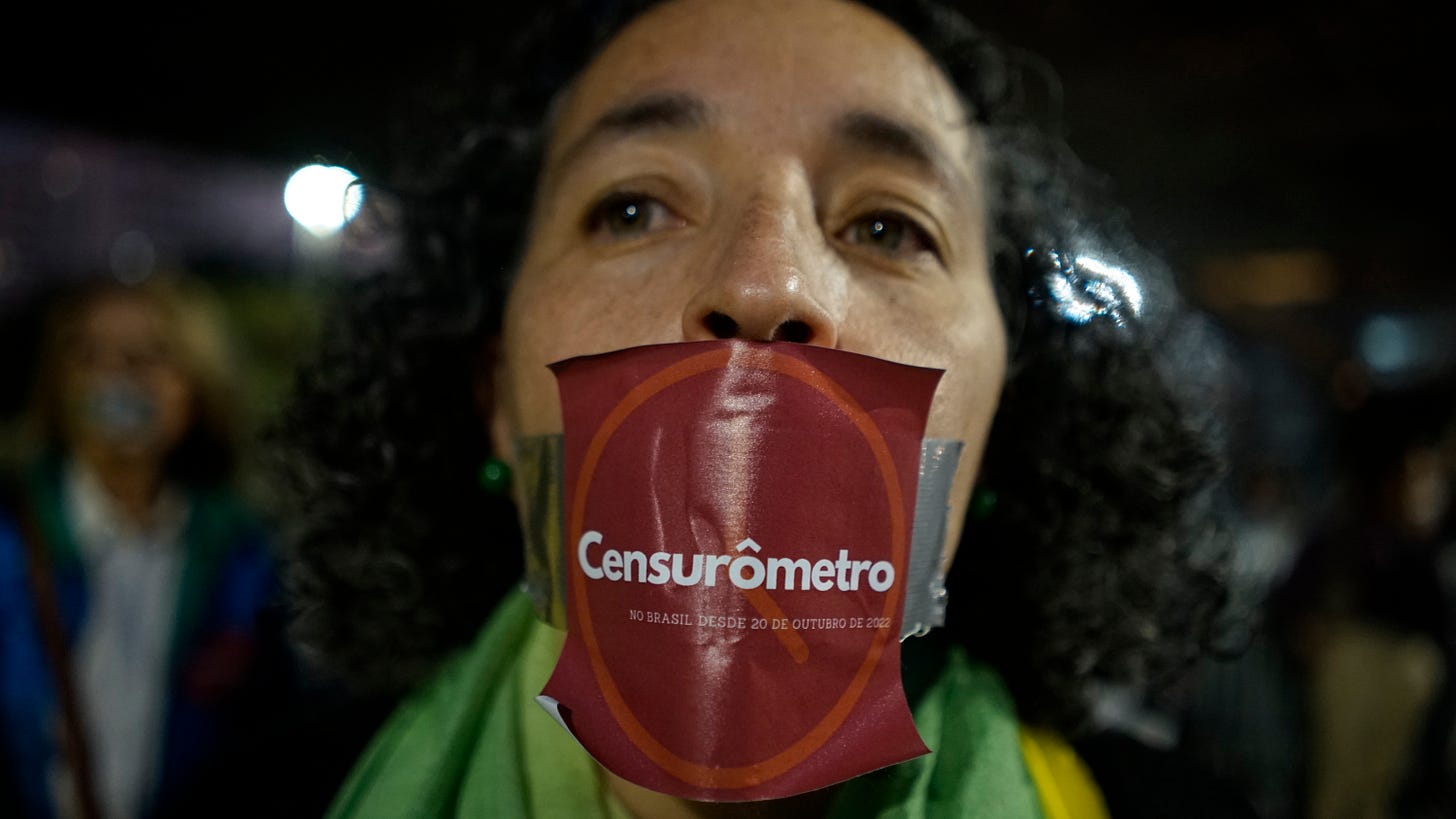Elite Panic Behind Brazil's Crackdown on Free Speech
The powerful judge who is censoring and persecuting dissidents isn't acting alone

For more than three decades, foreign policy experts have viewed Brazil as a relatively stable democracy. In 1988, after Brazil ratified its democratic constitution after a quarter-century of dictatorship, many people lauded it as far more progressive than the constitution of the US and other Western nations. In the 35 years since, Brazil has grown to be the economic superpower of Latin America, with 216 million people and the 11th largest economy in the world, an apparent model for other post-dictatorial developing nations.
But in just a few short months, Brazil has earned the reputation of a nation slipping back into repressive authoritarianism and censorship, raising serious questions about its status as a model for other developing nations. The censorship is coming from the president of Brazil’s Supreme Electoral Court (TSE), Alexandre de Moraes, who has used his unique powers to investigate, prosecute, and deplatform high-profile people, including “the Joe Rogan of Brazil,” for things they’ve said online.
Brazil remains a free and democratic nation. It is not a dictatorship like China or Russia. There isn’t evidence of the kind of hidden, mass censorship of disfavored views, like there was and is by Twitter and Facebook, relating to everything from Covid-19 to climate change to Ukraine. Most opposition voices in Brazil are still free to express their views without facing prosecution or censorship.
But De Moraes has censored a shocking number of high-profile individuals in a remarkably short period of time. In addition to censoring Brazil’s Joe Rogan, De Moraes banned the social media accounts, froze the bank accounts, and revoked the passport of Rodrigo Constantino, an economist and writer who describes himself as a classical liberal. In total, De Moraes has singlehandedly banned over 100 Brazilians on social media between July 2020 and April 2023.
“People are scared,” Constantino told Public. “I am scared.”
The same censorship process is effectively creating a secret Star Chamber-like process of persecution. De Moraes has explicitly prevented Constantino and others from defending themselves publicly. When asked what he might have done to inspire such prosecution, Constantino told Public that if he revealed the evidence De Moraes is citing for his alleged crime, De Moraes could punish him for revealing state secrets.
Nobody should be more outraged by De Moraes’ censorship than President Luis Inácio Lula da Silva. Brazil’s military dictatorship censored and incarcerated Lula when he was president of a confederation of labor unions in the 1970s. Lula’s Workers Party and its civil society allies pressured the military regime to democratize. And, for decades, Lula has spoken out for freedom of speech for the people of Brazil and people around the world.
But instead of pushing back, Lula’s government has been trying to formalize and usurp De Moraes’ authority for itself. In his first month as president, Lula created the “Department to Promote Freedom of Speech'' to tackle “disinformation and hate speech on the internet,” followed by the “National Prosecutor's Office for the Defense of Democracy.” These two departments would jointly constitute an Orwellian “Ministry of Truth,” capable of censoring and punishing those guilty of wrongspeak. And Lula’s Workers Party has been pushing through Congress a “Fake News” bill, which would further institutionalize the censorship regime.
Facing fewer legal barriers to censorship than other nations, Brazil has become a guinea pig for the global effort to censor information. Why is that? What in the world is going on in Brazil?
Soros Censorship Complex





